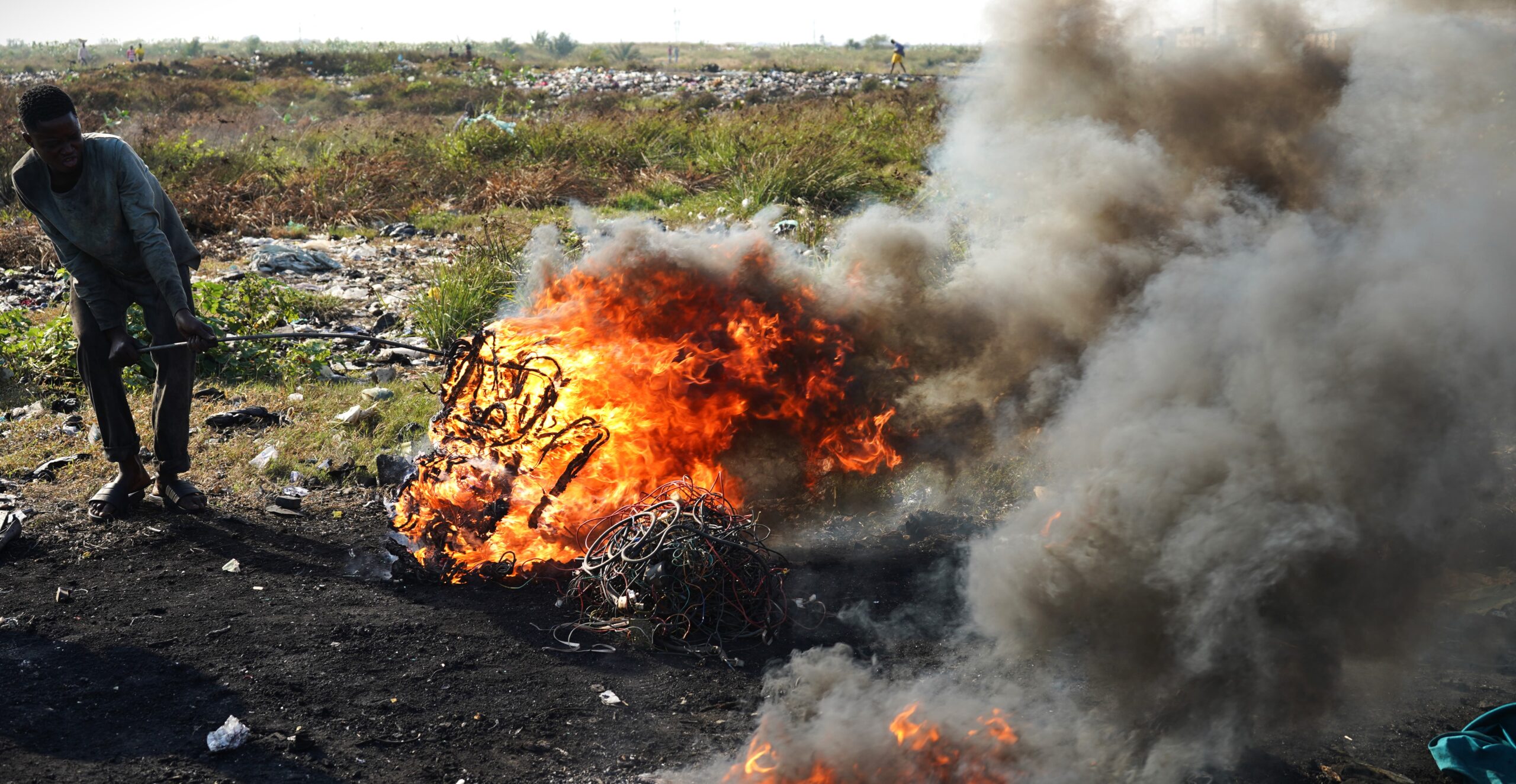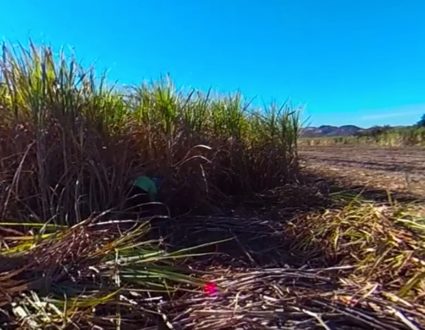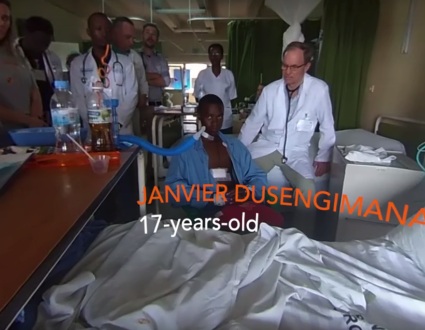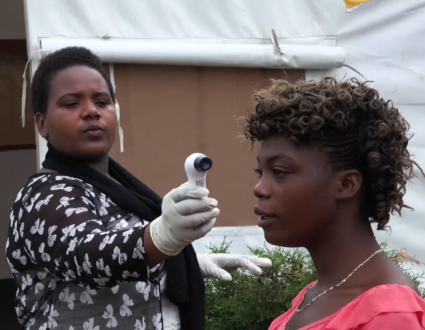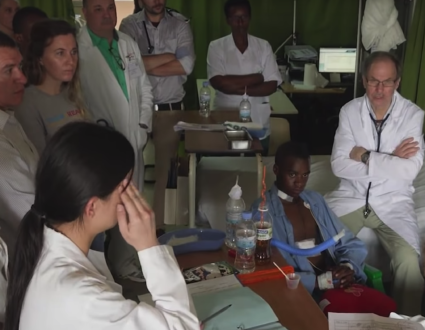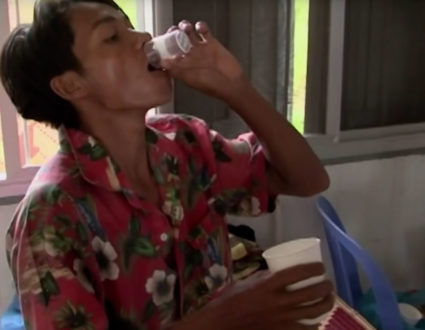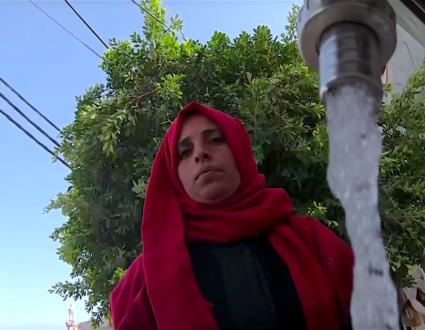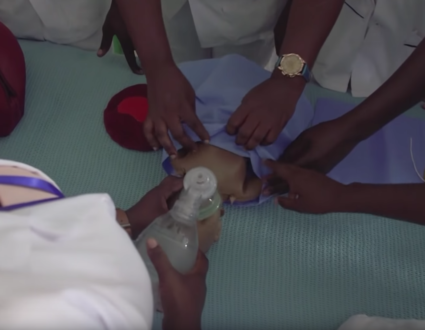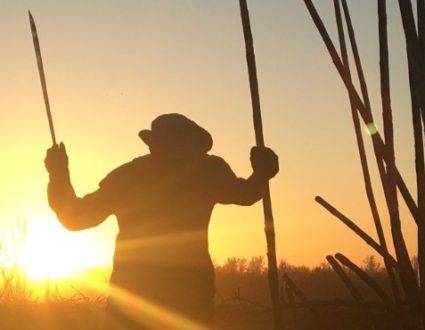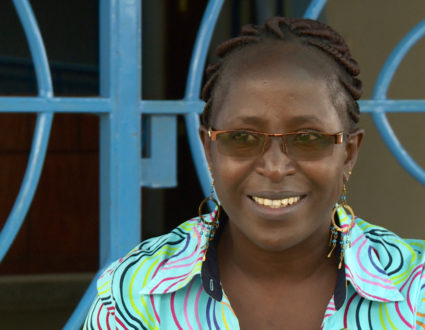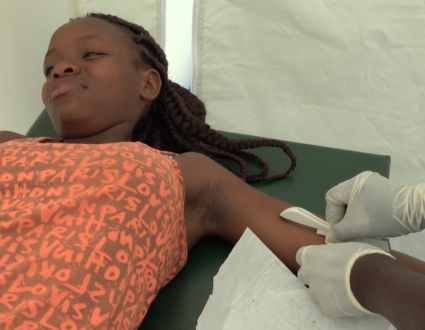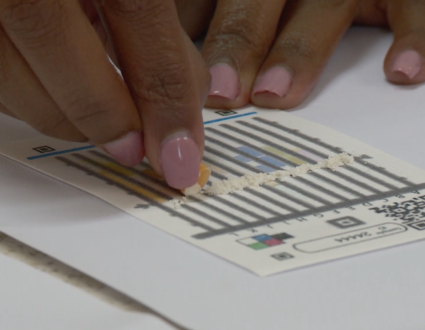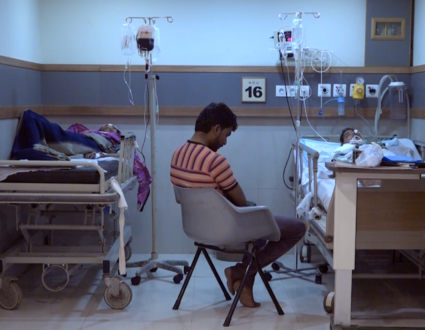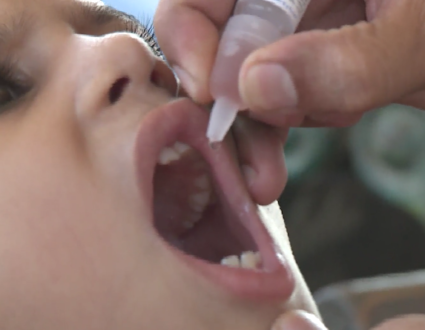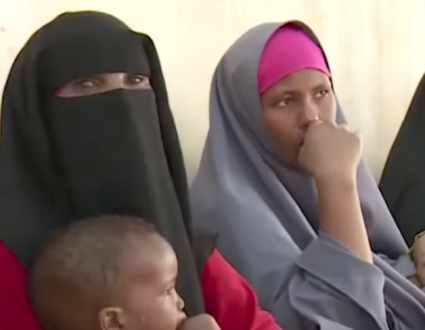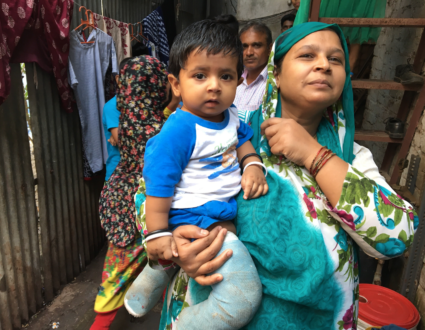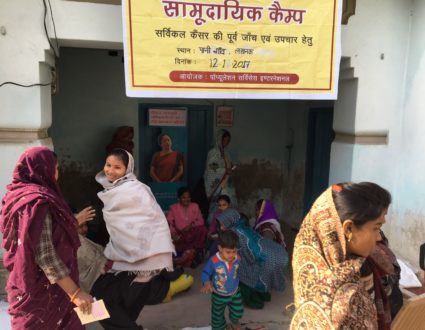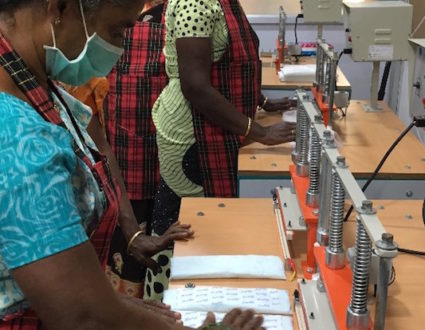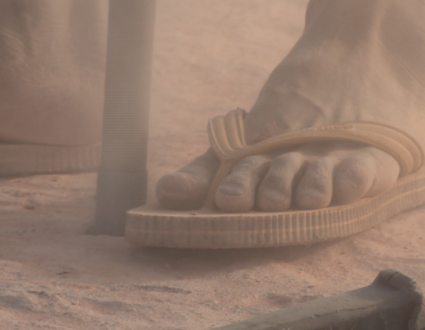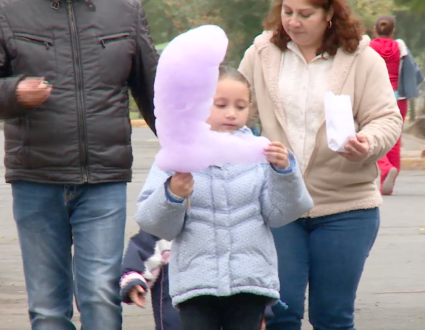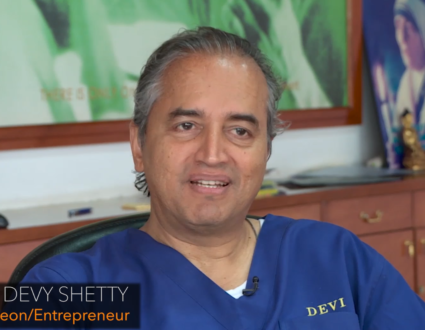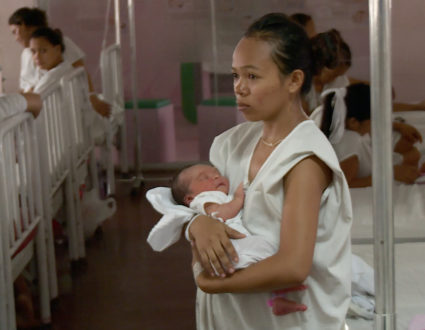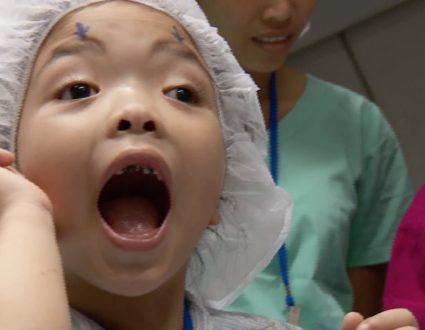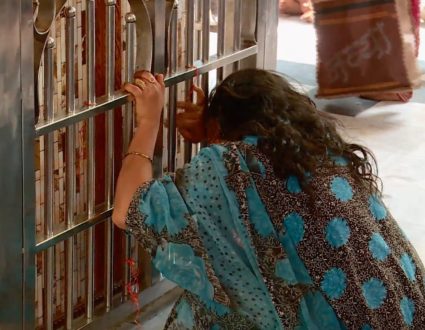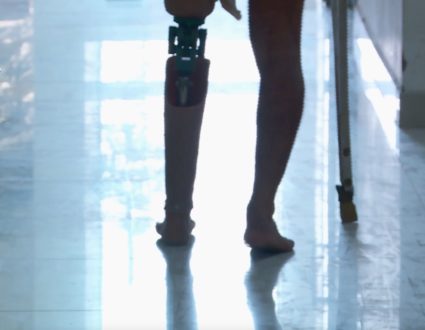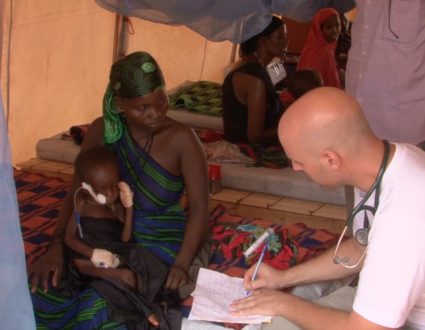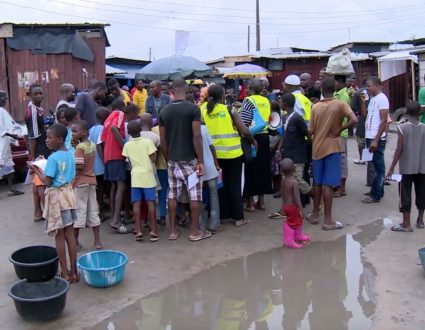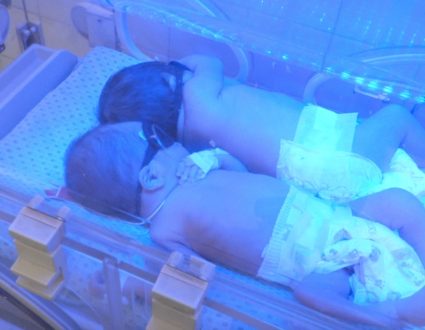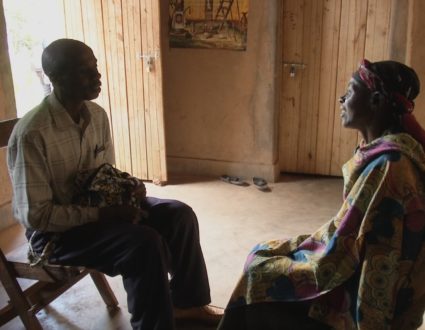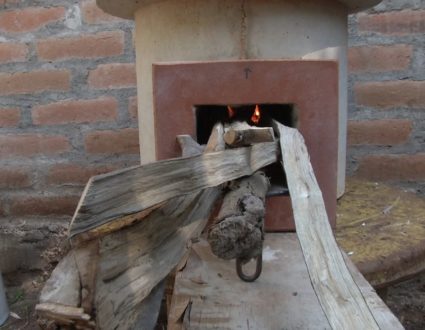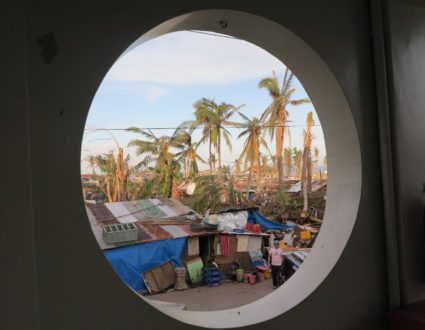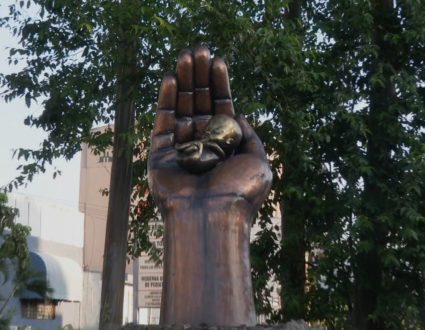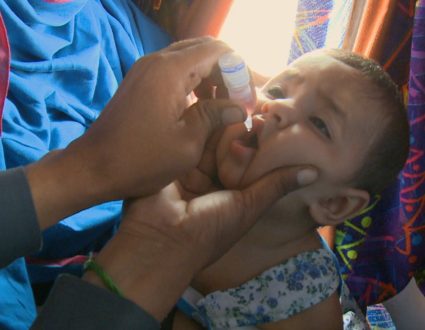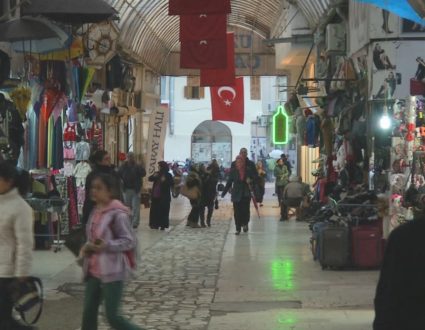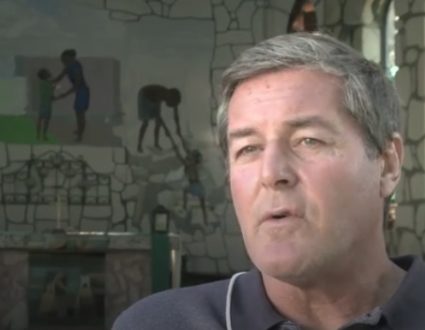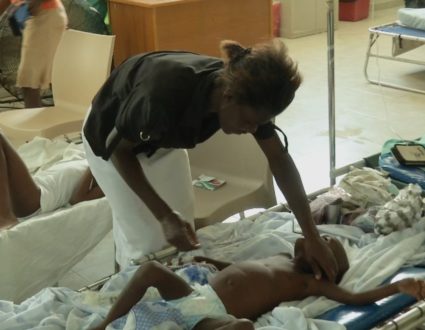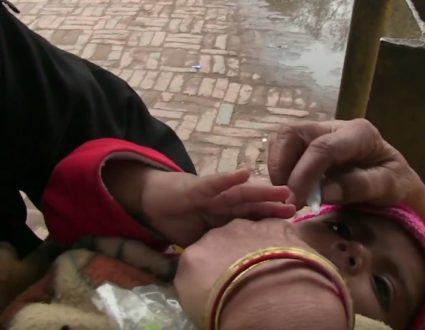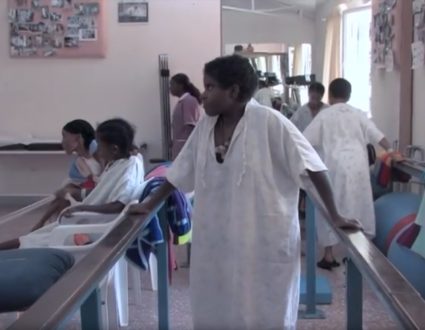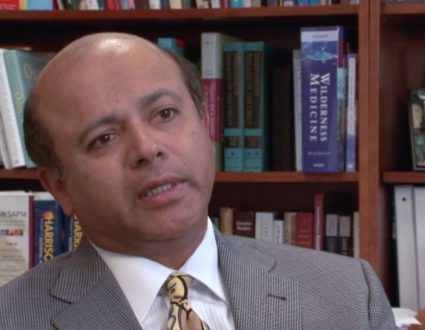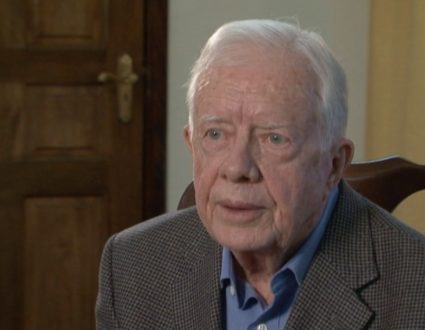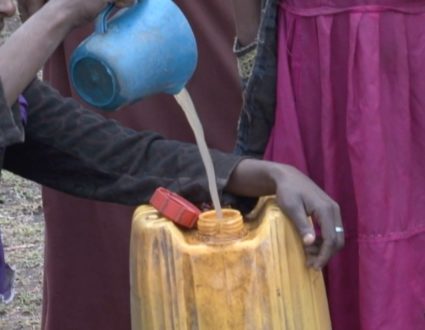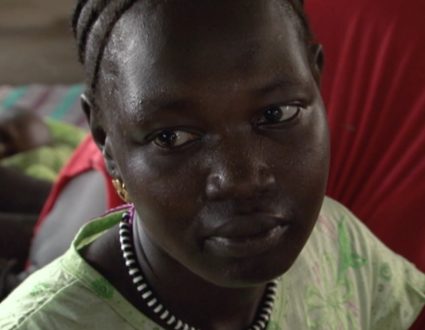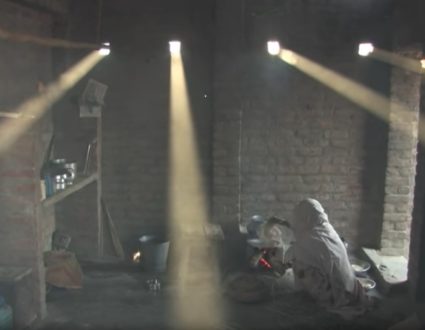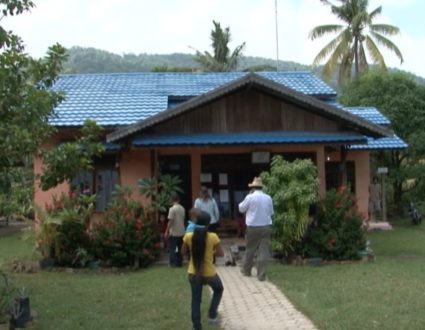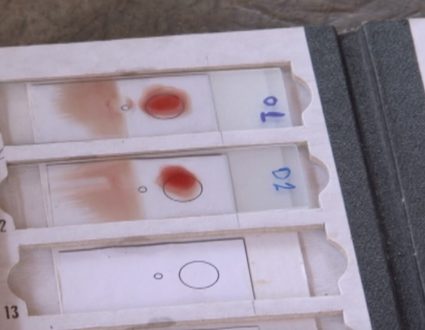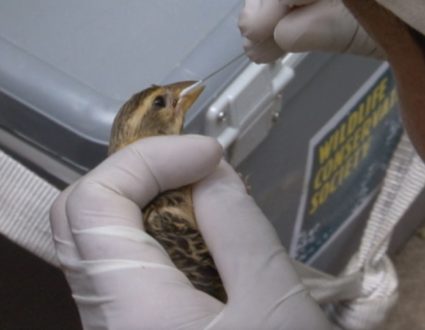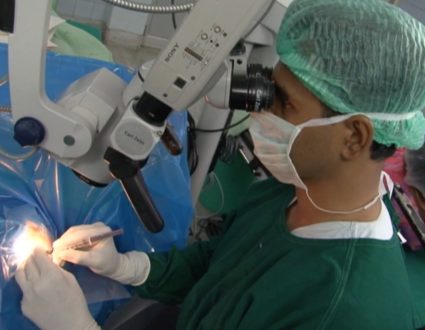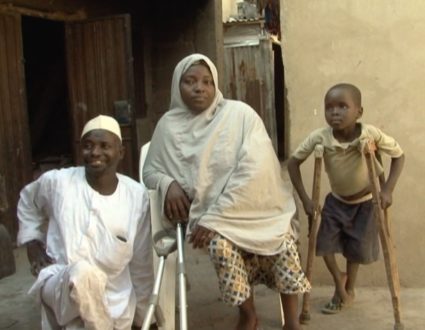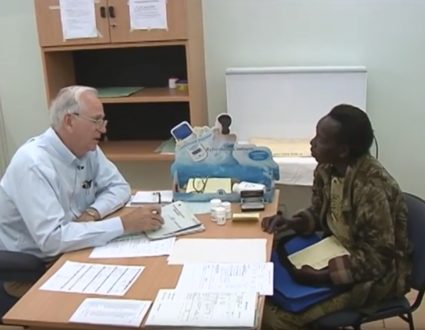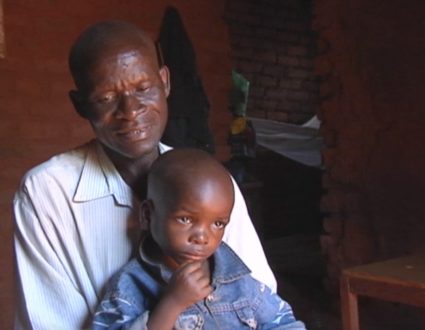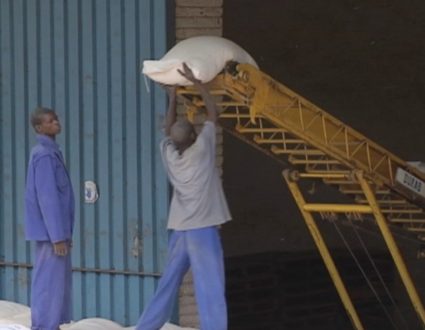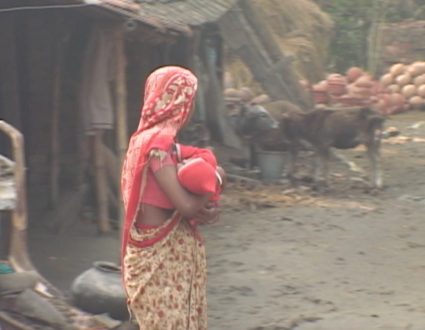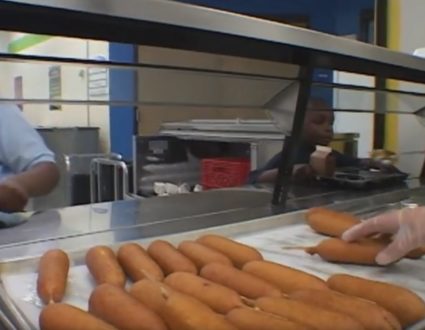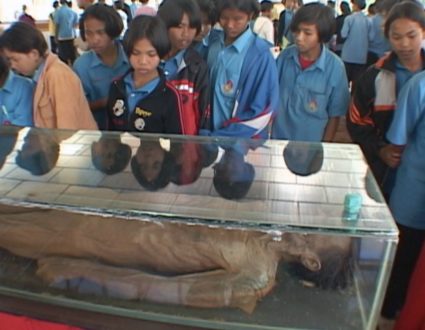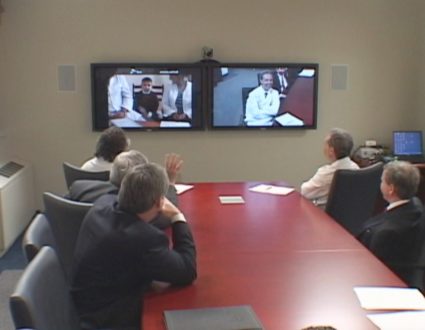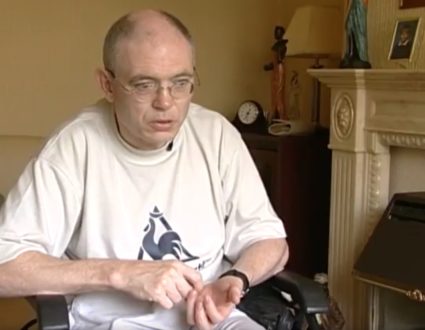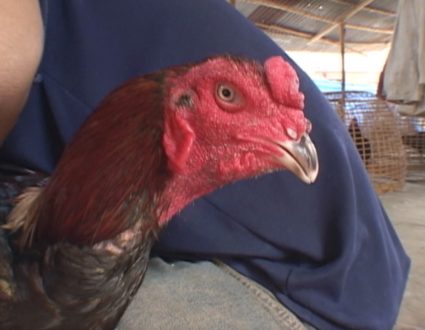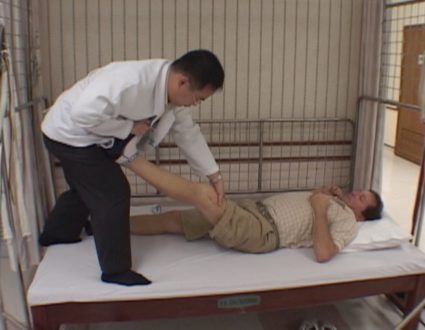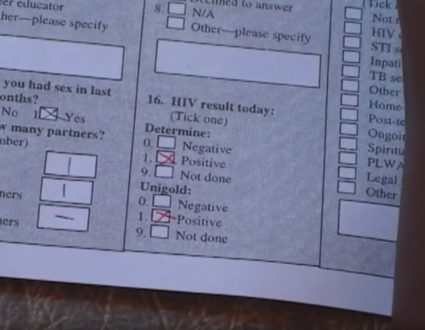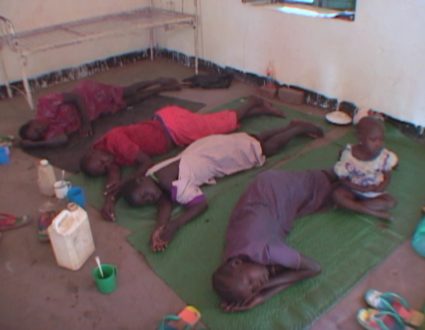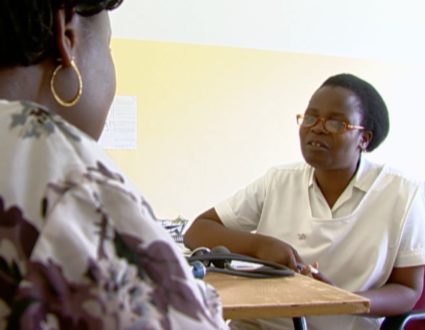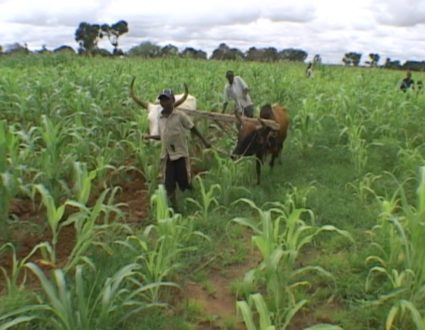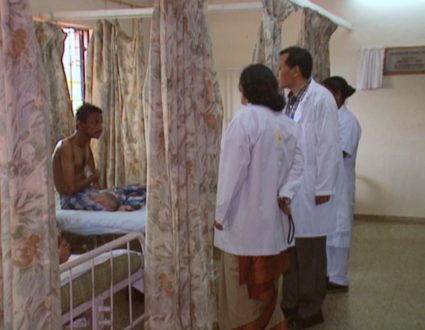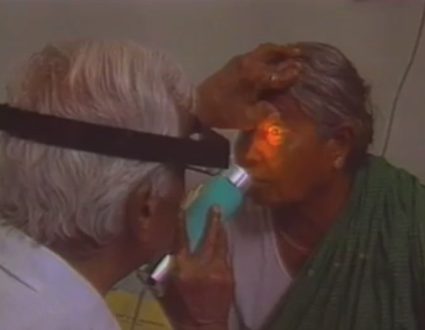- Judy Woodruff:The demand for nurses has reached a historic high in the U.S. An already short supply significantly worsened during the pandemic. That has driven the recruitment of foreign-trained nurses to record levels.Correspondent Fred de Sam Lazaro traveled to North Dakota to see the challenges both hospitals and nurses are facing.
- Fred de Sam Lazaro:It’s a long way to just about anywhere, even your neighbor’s ranch, across the rolling prairies of Western North Dakota, where cows far outnumber people.The nearest town of Elgin has no stoplights or fast food joints for its 543 residents, but, to people’s immense relief, it does have a small hospital.
- Charlie Steinkuehler, North Dakota:Our population is mainly older.
- Fred de Sam Lazaro:We met Charlie and Enid Steinkuehler at The Sippin’ Chicken coffee shop.
- Enid Steinkuehler, North Dakota:When we need to get to the doctor quickly, it’s really good to have this facility here.
- Charlie Steinkuehler:We’re 70 miles from Bismarck, which is…
- Fred de Sam Lazaro:A long drive.
- Charlie Steinkuehler:If you had a heart attack, you wouldn’t last.
- Teddy Werner, Nursing Director, Jacobson Memorial Hospital:I will start with no staff members in the last month, so, Rose, she’s an OB. She’s from the Philippines. She’s going to be night charge nurse to start with.
- Fred de Sam Lazaro:At the Jacobson Memorial Hospital, nursing director Teddy Werner is a rarity. She was born and raised in this area. Most of the 10 to 12 nurses working here come through a revolving door, temporary so-called travel nurses from across the U.S. and foreign ones on longer contracts.
- Teddy Werner:We have had a group of Filipinos in the past, also a group of Kenyans. So they kind of become core staff. They are here longer. You get to know them very well.I have a nurse that wants to meet you.
- Rose Tesani, Nurse:Hi.
- Woman:Where were you before?
- Rose Tesani:Philippines.
- Woman:Where?
- Rose Tesani:Philippines, in my country.
- Woman:Philippines?
- Rose Tesani:Yes.
- Patricia Pittman, George Washington University:So, we’re going to be seeing tens of thousands of Filipino nurses coming to the United States.
- Fred de Sam Lazaro:George Washington University Professor Patricia Pittman says the U.S. has long recruited nurses from that Southeast Asian country, where longstanding colonial ties helped create an American model of nursing education.Pittman says the U.S. was facing a nurse shortage before the pandemic due to an aging work force and, paradoxically, good economic times, when many nurses quit if their spouses are gainfully employed. COVID she says rapidly escalated the exodus.
- Patricia Pittman:Everything from the first period, when there wasn’t enough PPE and they felt betrayed by employers that were not protecting them, to issues around having to take care of their families as caregivers themselves — it’s a female-dominated profession — to just the exhaustion from witnessing so much death and suffering.
- Rose Tesani:So I can choose any patient for this one?
- Teddy Werner:Mm-hmm.
- Rose Tesani:OK.
- Fred de Sam Lazaro:The pandemic also delayed Rose Tesani’s arrival here. She was offered this job in 2016, but visa processing, already backlogged, was pushed back further.
- Rose Tesani:That one has a HEPA filter.
- Fred de Sam Lazaro:With years of experience, the 35-year-old Tesani expects to adapt quickly to the American system. But she did admit to one fear early on.
- Rose Tesani:This is the first time that I will be handling people from this country. And I don’t know if they will accept me, based on my skin color.But, based on my experience since I came, I don’t feel any of that.
- Woman:I got brown eyes, too.
- Rose Tesani:Yes, you do. You’re so pretty.
- Fred de Sam Lazaro:During week one of a three-year contract, Tesani said she found people welcoming and helpful, helping her make the adjustment to life here.
- Rose Tesani:At the moment, I don’t have a car. Once I get that, problem solved.
- Fred de Sam Lazaro:Until you start driving in the wintertime.
- Rose Tesani:Oh.
- Fred de Sam Lazaro:North Dakota’s cold weather is one reason why most foreign nurses don’t renew past their three-year obligation. Isolation is another.In Dickinson, about 80 miles northwest of Elgin, nurse Roger Uy and wife Noemi (ph) arrived from Manila via San Francisco with their 1-year-old son, Raiu (ph), exhausted from all the travel, unsure about the blast of cold air that greeted him.However, Roger Uy’s always employer, the 88-bed St. Luke’s skilled nursing facility, offered a warm welcome on a busy first full day in Dickinson.
- Amy Kreidt, CEO, St. Luke’s Home:Fingerprints, apartment, shopping. Hopefully, you’re ready for this.(LAUGHTER)
- Roger Uy, Nurse:I’m waiting for it for a long time already.
- Amy Kreidt:Yes.
- Fred de Sam Lazaro:Roger Uy had waited four years since being offered this job for his visa to clear. St. Luke’s CEO, Amy Kreidt, played tour guide for the day, as he got fingerprinted at the police station, required for new immigrants.
- Man:Are you thinking like a sofa and a recliner, or are you thinking a sectional?
- Fred de Sam Lazaro:As they browse the furniture store and, most critically, the Uys got to meet Filipino colleagues at St. Luke’s six of the seven nurses now on staff.
- Woman:Christina has a young daughter.
- Amy Kreidt:So, if we can have any employee with their family, you’re less likely to be lonely. You’re more likely to be social and out and about vs. if your family is across the world.So just having an adequate size Filipino population in our town is a good asset and resource for them.
- Fred de Sam Lazaro:One question raised in this story concerns the ethics of rich countries luring away the best talents of poorer ones, whether the Philippines or India, and especially countries in sub-Saharan Africa and the Caribbean, which don’t graduate a lot of nurses and desperately need their services.
- Patricia Pittman:The World Health Organization has been very concerned about poaching from poor countries, because you’re essentially using taxpayer money from those countries to fund our health work force.I would say, at the policy level, however, at least in terms of Congress, there has been very little interest in this issue.
- Fred de Sam Lazaro:Did you always want to work in America?
- Rose Tesani:Yes, it’s a 13-years dream for me.
- Fred de Sam Lazaro:You have been dreaming about this for 13 years?
- Rose Tesani:Yes, since I passed my exams in the Philippines. This has always been my dream.
- Fred de Sam Lazaro:Tesani and Roger Uy say nurses get little respect in the Philippines, a complaint echoed among American nursing groups. But back home, it’s also reflected in pay, which Uy says is about one-tenth of what they will earn here in North Dakota.
- Roger Uy:My role really is to give my son a better life. So I think being here secures him.
- Fred de Sam Lazaro:You hear some people sometimes say, it’s not ethical for rich countries to take the best brains from poor countries. Have you ever given that any thought?
- Roger Uy:Well, I think, for me, I have spent 15 years already in the Philippines. So I think the service that — the service that I gave to the Philippines is enough.So I think maybe it’s my time to give for myself, to choose for a better life.
- Fred de Sam Lazaro:How long that will be in North Dakota remains to be seen. Four more Philippine nurses have been offered jobs at St. Luke’s and are awaiting their visa approval.For the “PBS NewsHour,” this is Fred de Sam Lazaro in Dickinson, North Dakota.And a reminder. Fred’s reporting is in partnership with the Under-Told Stories Project at the University of St. Thomas in Minnesota.
Supply and Demand
for decades, the philippines have trained nurses to be sent to the u.s.
The U.S. has long recruited nurses from that Southeast Asian country, where longstanding colonial ties helped create an American model of nursing education. Today, those nurses are eagerly recruited to fill positions across America, particularly in rural hospitals that find it difficult to retain local staff.
77%
of international nurses in the U.S. came from India, Jamaica or Philippines

Elgin, North Dakota
This small community is home to Jacobsen Memorial Hospital, a vital lifeline for the region
Rose Tesani
is the newest addition to the Jacobsen nursing team. She waited for years for her visa approval to come through.


Teddy Werner, Jacobsen Nursing Director
“they kind of become core staff. They are here longer. You get to know them very well.”




